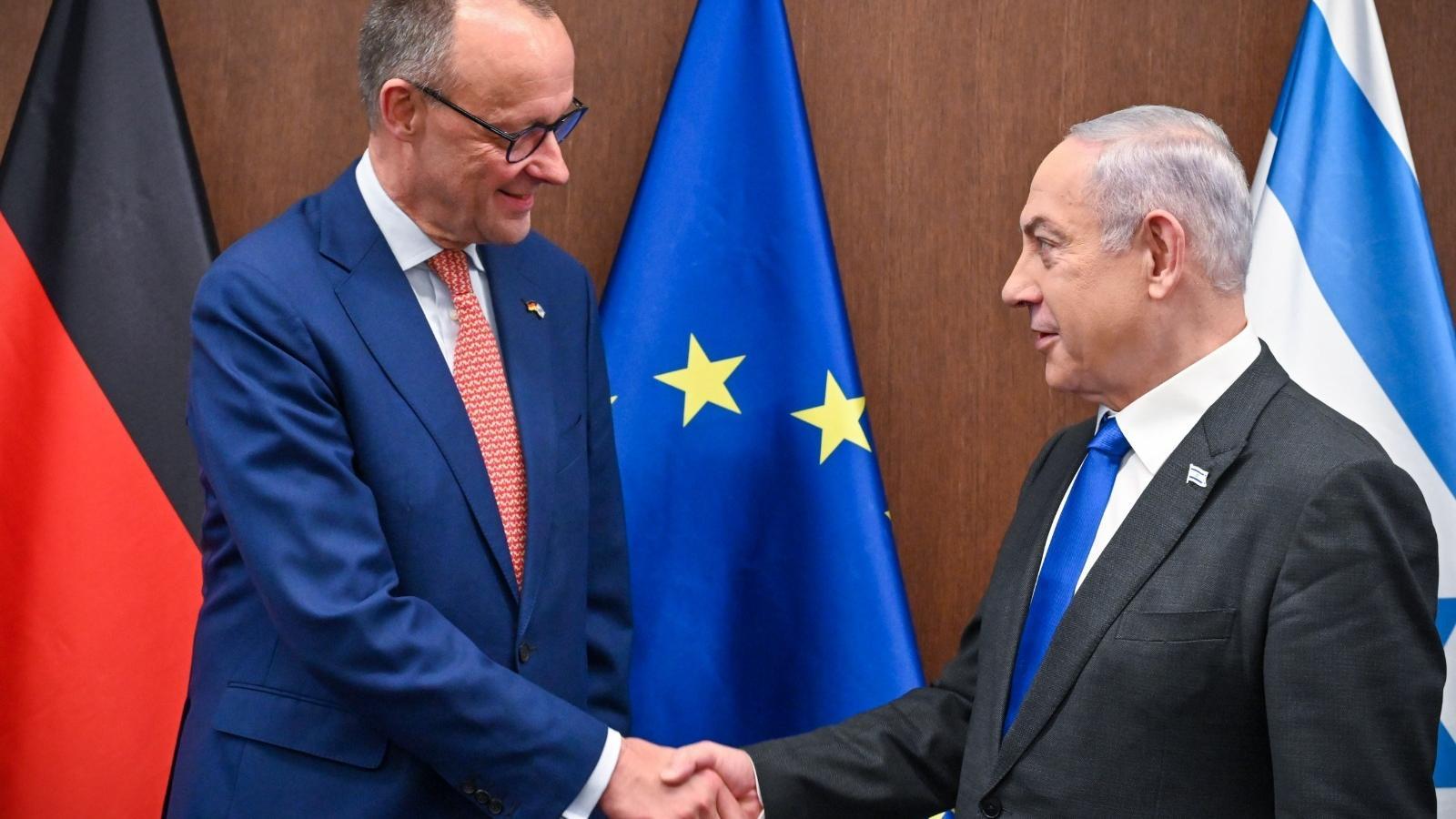Germany, the biggest stumbling block in all of Europe's attempts to stop Netanyahu
Germany is one of the most pro-Zionist countries in the EU and always pushes to avoid sanctioning Tel Aviv.


BrusselsTwenty-five countries called for this Monday in a joint statement the immediate end to the Gaza war. Among the signatories are the United Kingdom, Canada, Spain, France, Italy, and Sweden. But the largest and most influential member state of the European Union is missing: Germany. This absence is not surprising considering that Germany is one of the most pro-Zionist countries on the continent and has always put obstacles in the way of any measure by the European bloc to stop Benjamin Netanyahu.
Beyond the letter from the twenty-five countries this Monday, Berlin has blocked and attempted to downplay any request from European leaders for an immediate ceasefire in Gaza. However, it always reiterated Israel's right to defend itself, although it does not do the same with the obligation to comply with international and humanitarian law. In fact, this is the first time the EU agreed to request a kind of ceasefire It was with very ambiguous vocabulary to please Germany and prevent it from vetoing the request: they ended up asking "an immediate humanitarian pause" that would lead to a "sustainable ceasefire" instead of a ceasefire directly. the association agreement between the European Union and Israel, which allows Tel Aviv priority treatment from Brussels in economic and political matters. Some countries, such as Spain, have publicly called for its revocation until there is assurance that the Israeli army will allow humanitarian aid into Gaza. In contrast, another group of states, led by Germany, is staunchly opposed, and Berlin even voted against reviewing the agreement and investigating whether Tel Aviv truly complies with humanitarian and international law. The report concluded that there are "indications" that it does not, but that did not change the German government's mind either.
On the other hand, Germany also opposes the initiative promoted by Spain to freeze EU arms exports to Israel. In fact, after the United States, German industry is the largest exporter of arms to Israel, and around 30% of the military equipment entering the country is of German origin, according to the SIPRI report. The vast majority of the remaining weapons used by the Israeli army come from the United States.
So, contrary to what it may seem, the EU does have leverage over Netanyahu. In fact, beyond arms, Israel's main trading partner is the European Union, and 32% of its international transactions in 2024 were with member states of the European Club, according to data from the European Commission itself. Furthermore, 34.2% of Israeli imports come from the EU, and 28.8% of exports go to the bloc. In contrast, Tel Aviv is the EU's 31st trading partner and accounts for only 0.8% of the European partners' total international trade.
Germany's Traumas
However, German Chancellor Friedrich Merz is, for the first time, issuing timid criticism of Tel Aviv's attacks on civilians, especially children, or obstructing the entry of humanitarian aid to Palestinian citizens. "I no longer understand what their objective is in Gaza," the conservative leader said at the end of last May. It wouldn't be the first time that Berlin has overcomes traumas that go back in World War II, such as the desire to rearm, exceed deficit limits, or reduce the obsession with keeping inflation under strict control. However, despite Merz's words, Germany's attitude has not changed, and Israel has not received any sanctions from the European Union despite the more than 55,000 deaths in Gaza since the war began.
